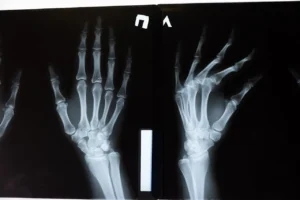
AbbVie (NYSE: ABBV) today announced the launch of PRODUODOPA® (foslevodopa/foscarbidopa) in the European Union for the treatment of advanced Parkinson’s disease with severe motor fluctuations and hyperkinesia (excessive movement) or dyskinesia (involuntary movement), and when available combinations of Parkinson’s medicinal products have not given satisfactory results.1
PRODUODOPA is the first-and-only subcutaneous 24-hour infusion of levodopa-based therapy for the treatment of severe motor fluctuations in people living with advanced Parkinson’s disease whose symptoms are inadequately controlled by other therapies. The continuous delivery of PRODUODOPA provides levodopa 24-hours a day which may help patients by extending the period when symptoms are well-controlled, often referred to as “On” time.2
AbbVie was granted marketing authorization of PRODUODOPA through the Decentralized Procedure in the third quarter of 2022. The VYAFUSER™ pump for the subcutaneous delivery of PRODUODOPA received Conformité Européenne (CE) Mark in November of 2023.
Parkinson’s disease is a chronic, progressive neurodegenerative disorder affecting approximately 6.1 million people globally3 and is expected to double by 2040. Parkinson’s disease is characterized by tremor, muscle rigidity, slowness of movement and difficulty with balance.4 As the disease progresses, the severity of symptoms increases5, and patients tend to experience greater disability and an impaired ability to perform activities of daily living6, as well as the reemergence of symptoms as standard treatment wears off.7 Characteristics of advanced Parkinson’s disease may include needing help with performing daily activities, increased motor fluctuations (changes in the ability to move referred to as “On-Off” times), difficulty swallowing, recurrent falls, dementia, dyskinesia (involuntary movements) and other symptoms.5
“People living with Parkinson’s disease experience daily challenges and uncertainty, especially as their disease progresses and symptoms are no longer adequately controlled,” said Roopal Thakkar, Senior Vice President, Chief Medical Officer, Global Therapeutics, AbbVie. “This approval is an example of our unwavering commitment to this community by developing new, transformative therapeutic options for people experiencing advanced Parkinson’s disease, their families, and care partners.”
The launch was supported by three studies: the Phase 3, 12-month open label study (M15-741 study) which evaluated the long-term safety, tolerability, and efficacy of continuous subcutaneous infusion of PRODUODOPA8, the Phase 3, 12-week study (M15-736 study) which compared the efficacy and safety of PRODUODOPA to oral levodopa/carbidopa2, and a Phase 1 pharmacokinetic comparability study.9
Findings from the M15-741 safety and tolerability study showed a favorable benefit/risk profile and demonstrated sustained improvements in “Off” time and “On” time without dyskinesia, and morning akinesia as measured by the percentage of patients in early morning “Off” time as recorded by PD diary.8
The majority of adverse events (AEs) with PRODUODOPA were non-serious and mild or moderate in severity. The most frequent AEs (greater than or equal to 10 percent) were infusion site events (infusion site erythema, infusion site cellulitis, infusion site nodule, infusion site pain, infusion site oedema, infusion site reaction, and infusion site infection), hallucination, fall, and anxiety.1
“This approval represents a significant advancement for those with Parkinson’s disease who have historically had limited treatment options for advanced stages,” said Angelo Antonini, MD, PhD, Professor of Neurology at the Department of Neuroscience, University of Padua, Italy. “When oral treatment no longer sufficiently helps with improvement in motor fluctuations, patients need alternative options. PRODUODOPA’s around-the-clock infusion allows for continuous delivery of levodopa, the gold standard of treatment.”
“As Parkinson’s progresses, it can take a significant physical and emotional toll not only on the person but also on their family and care partners, who often play a critical role in their daily lives,” said Josefa Domingos, President, Parkinson’s Europe. “It is vital that the Parkinson’s community have more options that can help them manage their symptoms.”




